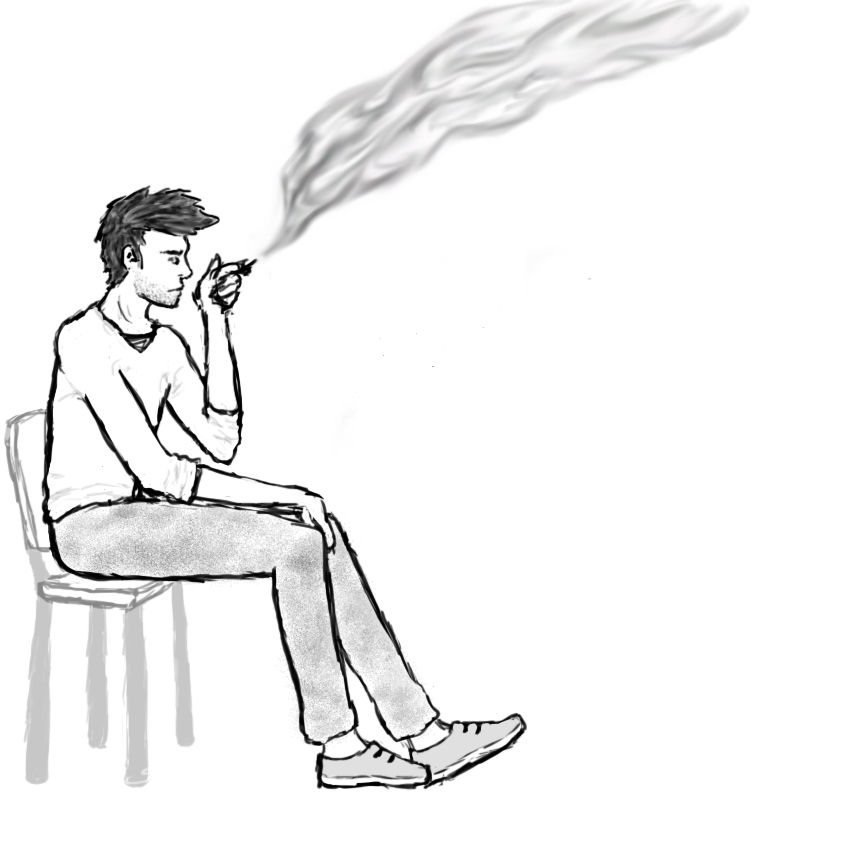One year later, campus smoke-free policy shows results
October 21, 2015
This is an opinion article and does not necessarily reflect the views of The Tulane Hullabaloo.
In August 2014, Tulane University instated a campus-wide smoke-free policy, backed by the Undergraduate Student Government. This policy removed the ability to smoke on campus, enforced by fines. As a smoker, I have personal conflicts with the policy, finding it unnecessary showboating to bring more students to campus. It is undeniable, however, that there have been results. Since the implementation, non-smoking students walking to class do not experience smoke being blown in their faces and smoking students crowd to certain accessible spaces around campus. Whether or not the original intentions have been realized, the clear progress is visible.
This policy is not unique among peer institutions across the country. Emory University and George Washington University have enforced similar policies. These actions stem from the general public attitude towards smoking. Through active anti-smoking media and education campaigns, the percentage of American smokers has dropped from 42 percent in 1965 to 19.6 percent in 2013.
The initial backlash against a smoke-free campus stemmed from the idea that second-hand smoke outdoors has little to no effects on those around them, as backed by The Journal of the National Cancer Institute.
An additional concern was the safety of students going off-campus to smoke, especially at night.
“TheWELL and departments within Campus Health are always looking for ways to increase the safety and wellbeing of our students,” Lindsey Greeson, director of the Center for Wellness and Health Promotion, said. “We hope students who feel the urge to smoke at night off-campus will consider receiving tobacco cessation services to quit tobacco.”
Greeson also offered safety tips such as the buddy system, being aware of your surroundings and contacting TUPD. Students have been smoking off campus frequently, evidenced by the cigarette butts that continue to litter high-traffic areas, such as Freret Street. There has, however, been a slight increase in students seeking smoking cessation services from TheWELL.
Second-hand smoke, the largest driving factor of the policy, is another contested issue (though less so, a year after implementation). According to a study published in the Journal of the National Cancer Institute, the percentage of second-hand smoke ingested outside is negligible, with little to no cancer-inducing effects.
Other sources speak to the contrary.
“Scientific evidence has firmly established that there is no safe level of exposure to second-hand tobacco smoke,” Greeson said, citing the World Health Organization and American College Health Association.
Whether or not the policy was a necessary decision, its effects are clearly apparent. Fewer students visibly smoke on campus. The policy, however, affects more than just students. All university employees must also follow these guidelines. Whether or not smoking cessation support is available to them is difficult to tell.
Despite the policy, on-campus smoking clearly has not been eradicated. That may have been the primary goal, but it is not unusual to see a student smoking at night around the dorms or on the quads. Even so, with the number of students smoking reduced by a significant amount, the smoke-free policy should be called successful. But unless Louisiana increases cigarette taxes or the university can find a way to ban the act on public property, it is unlikely that smoking will ever completely leave the Tulane bubble.
Kathryne is a junior at Newcomb-Tulane College. She can be reached at [email protected].























Leave a Comment